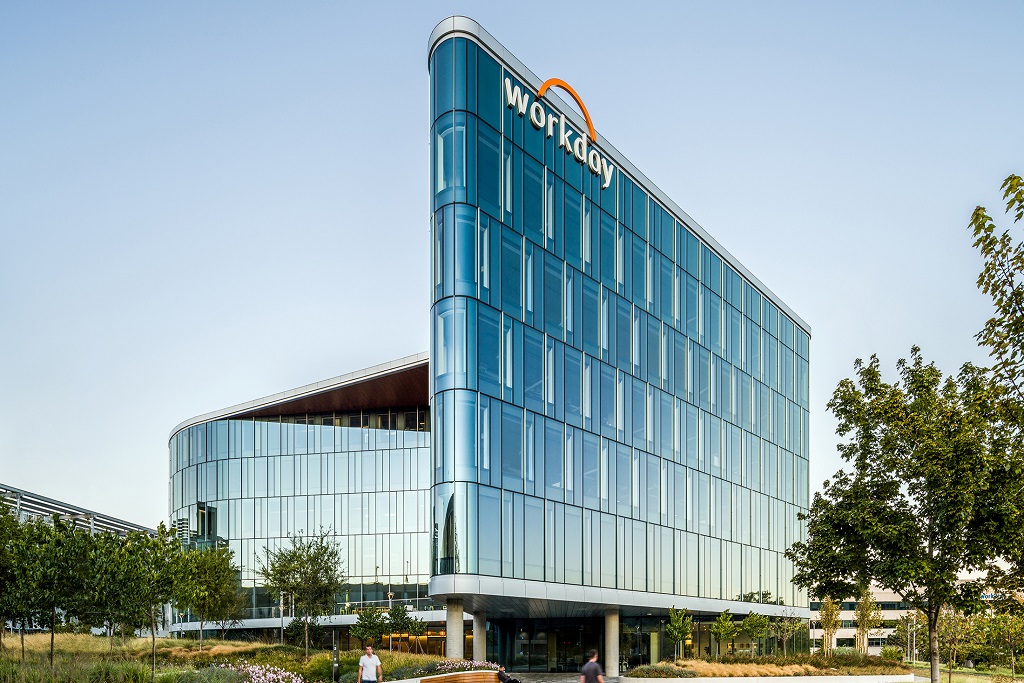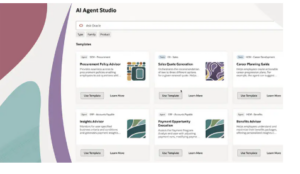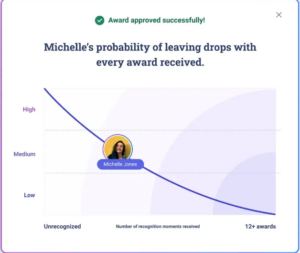HR Tech News Analysis: Workday Announces AI Agent System of Record
February 12, 2025
Background
Workday, who has become a leader in Human Capital Management (HCM) over the last 20 years by providing solutions that help organizations manage their workforce effectively has continued to drive innovation in HR and workplace technology. Building upon the company’s AI platform called Workday Illuminate, Workday is now focusing on integrating AI agents into workforce management to enhance productivity and efficiency.
This week the company announced a new workforce management system designed to help companies manage this new category of AI tools, known as Agentic AI, in a way that is designed to offer customers faster onboarding of new AI Agents, centralized management of the roster of AI Agents, better visibility and control of costs, effectiveness and ROI of deployed Agents, and more control to mitigate risks, manage access, and ensure overall compliance.
Workday is calling the new platform the Agent System of Record. It’s aimed at helping businesses that are deploying AI agents keep track of their new digital workforce and treat them the same way they do any other piece of software, while addressing new challenges that come with AI agents.
What is Agentic AI?
Before digging into the analysis and potential customer impact of this announcement, let’s make sure we understand AI Agents and Agentic technology. AI Agents refer to artificial intelligence systems that can take autonomous actions to accomplish specific goals or tasks within defined parameters. These systems are designed to work as “agents” that proactively perform tasks, make decisions, and interact with other systems or people, often using natural language, without requiring constant human input.
Agentic AI represents a shift from traditional AI tools that provide recommendations (chat-based replies to user inputs) or insights (e.g., predictive analytics) to AI systems capable of actively managing processes, initiating actions, and solving problems. In the context of HR technology, Agentic AI acts like a digital assistant that understands organizational needs, integrates with various systems, and helps HR professionals handle time-consuming or complex tasks with minimal oversight. It uses advanced capabilities like natural language processing (NLP), machine learning (ML), and integration with enterprise software to deliver value by automating workflows, improving decision-making, and enhancing employee experiences.
Early examples of the application of Agentic AI in support of HR and Talent Management processes include: (Note: for descriptive purposes, not intended to specifically refer to Workday’s announcement)
- Recruitment Assistant:
A hiring manager needs to schedule interviews with multiple candidates and team members. Instead of doing this manually, an AI agent takes over. It reviews the availability of all participants, sends out calendar invites, and even adjusts schedules if conflicts arise. Additionally, it follows up with candidates who haven’t responded and sends reminders automatically, ensuring the process moves forward efficiently.
- Employee Experience Personalization:
During onboarding, an AI agent assists new hires by guiding them through company policies, answering questions about benefits, and scheduling required training sessions. If an employee has a question about their pay, the agent can access payroll data, explain deductions, and even raise a ticket with HR if further assistance is needed, reducing response times and improving the overall experience.
- Workforce Planning Optimization:
An HR leader uses an AI agent to help optimize workforce planning. The agent analyzes historical workforce data, current headcount, and projected business needs, then proactively recommends staffing adjustments (e.g., hiring for specific roles or reallocating existing employees). The agent can even initiate job postings in recruiting systems or flag potential skill gaps to ensure the company is prepared for future demands.
Several leading HR technology providers have announced or released AI Agents for HR, including Oracle, IBM, UKG, and Workday itself. These AI agents provide HR professionals with time-saving tools, allowing them to focus on strategic priorities rather than routine tasks, and help organizations deliver a better employee experience while enhancing operational efficiency. Workday’s recent announcement of its Agent System of Record represents a key next step forward in helping organizations better manage their AI tools and also drive the most business value from them. Let’s explore the news in more detail.
Product/Service Offering Impact
According to the announcement, the essential components and capabilities of Workday’s new Agent System of Record include:
Centralized Agent Management: The new platform allows organizations to manage their entire fleet of AI agents, both from Workday and third parties, in one centralized system.
AI Agent Registration System: Provides organizations a roster of what agents are currently available. It includes role-based access for agents, their capabilities and the ability to activate and deactivate them.
Enhanced Capabilities: The platform provides tools for onboarding new AI agents, defining their roles and responsibilities, tracking their impact, budgeting, forecasting costs, supporting compliance, and fostering continuous improvement
Real-Time Operational Visibility: Monitor agent activity, enforce policies, and track costs in real time to optimize performance and ROI. Maintain continuous agent oversight with real-time identity verification, agent orchestration, and financial cost monitoring for optimal performance.
Additionally, Workday also introduced additional role-based AI agents, known as Illuminate Agents, which can be easily deployed and managed via the Agent System of Record. These agents are designed to perform specific roles such as payroll, contracts, financial auditing, and policy management. One notable example is the Payroll Agent, which identifies and updates invalid payroll data, automates audit workflows, surfaces insights, and recommends fixes. This agent also monitors compliance and delivers system updates.
Accompanying the announcement, Workday’s CEO Carl Essenbach said that the System of Record will provide businesses with an efficient way to onboard new AI Agents, define roles and responsibilities, track impact, budget and forecast costs and analyze compliance, all from a centralized dashboard that creates a single point of truth.
Customer Impact
For customers, the announcement of the new AI Agent System of Record capabilities offers several expected benefits. The anticipated benefits for customers should include:
Improved Efficiency: By centralizing the management of AI agents, organizations can streamline operations, reduce fragmentation, and improve overall efficiency
Cost Optimization: The platform helps in budgeting and forecasting costs associated with AI agents, enabling better financial planning and resource allocation
Enhanced Performance: With role-based AI agents, businesses can automate specific tasks, allowing human employees to focus on more strategic activities
Support Secure and Compliant Deployment: Deploy agents with confidence, leveraging automated configuration, access controls, and policy enforcement to mitigate risk.
If Agentic AI specifically, and AI technology more generally, continue to be increasingly important for enterprises and HR functions, then clearly a thoughtful, rational, consistent, repeatable, and compliant method to activate, deploy, and measure these AI capabilities is needed by customers. The Workday Agent System of Record announcement appears to be a step towards that goal and should be a model for ongoing adoption of enterprise and HR AI solutions.
What to Watch For
In the coming months we expect to see customers increase the adoption of AI solutions, capabilities, and increasingly, advanced Agentic AI tools as they continue to be rolled out by numerous HR technology providers. The challenges for customers are several, and include gaining insight into how the AI models are trained, how internal employee and company data is being used (and potentially shared with external AI platforms), understanding how an AI model arrives at a specific recommendation or “answer”, ensuring that internal governance and data security protocols are adhered to, training users and the optimal use of AI, and perhaps most importantly, managing the big picture balance between the tasks we trust the AI to manage, and the tasks we want to remain in the domain of human decision making and judgement.
AI technology has been the dominant story in HR and workplace technology for over two years now. For many organizations the time to debate and consider the use of AI technology in HR is passed, and 2025 will be the year of increased expectations and pressure to deliver results. With this announcement Workday has taken an important step forward in helping organizations drive insight and value from their investments in AI and we expect other providers to develop their own approaches to allow improved management of AI tools moving forward.
Congratulations to Workday for this exciting and innovative step forward in the development of AI capabilities and applications for the enterprise. As AI Agents continue to grow in number enterprises will need to take a strategic, structured, and repeatable approach to their deployment and management. The new AI Agent System of Record seems to offer an important first step into supporting those important requirements for customers. We look forward to following the progress and development of these tools and approaches from both Workday and other HR technology providers in the coming months and years.
How we can help
Led by Trish Steed and Steve Boese, H3 HR Advisors harnesses over 40 years of experience to delivery HCM insights and guidance to global organizations.
H3 HR Advisory services
By leveraging technology, analytics, and our deep industry knowledge we can help you to reposition your workforce and ensure that you have the right people with the right capabilities in the right roles to positively impact the growth of your business.
HR Happy Hour Podcast Network
Created in 2009, The HR Happy Hour Show is hosted by Steve Boese and Trish Steed and is the longest continuously running internet radio show and podcast on Human Resources, HR Technology, Talent Practices, Workplace and Leadership topics.
H3 HR Speaking Services
We work closely with every client to customize your content - keynotes, webinars, research, infographics, and buyer’s guides - to inspire, educate and inform the audience enabling you to reset and realign your organization for a talent-led breakthrough.
Get in touch
Talk to us today and find out how we can help you and your organization leverage HCM technology to attract, onboard, retain and manage top talent.




